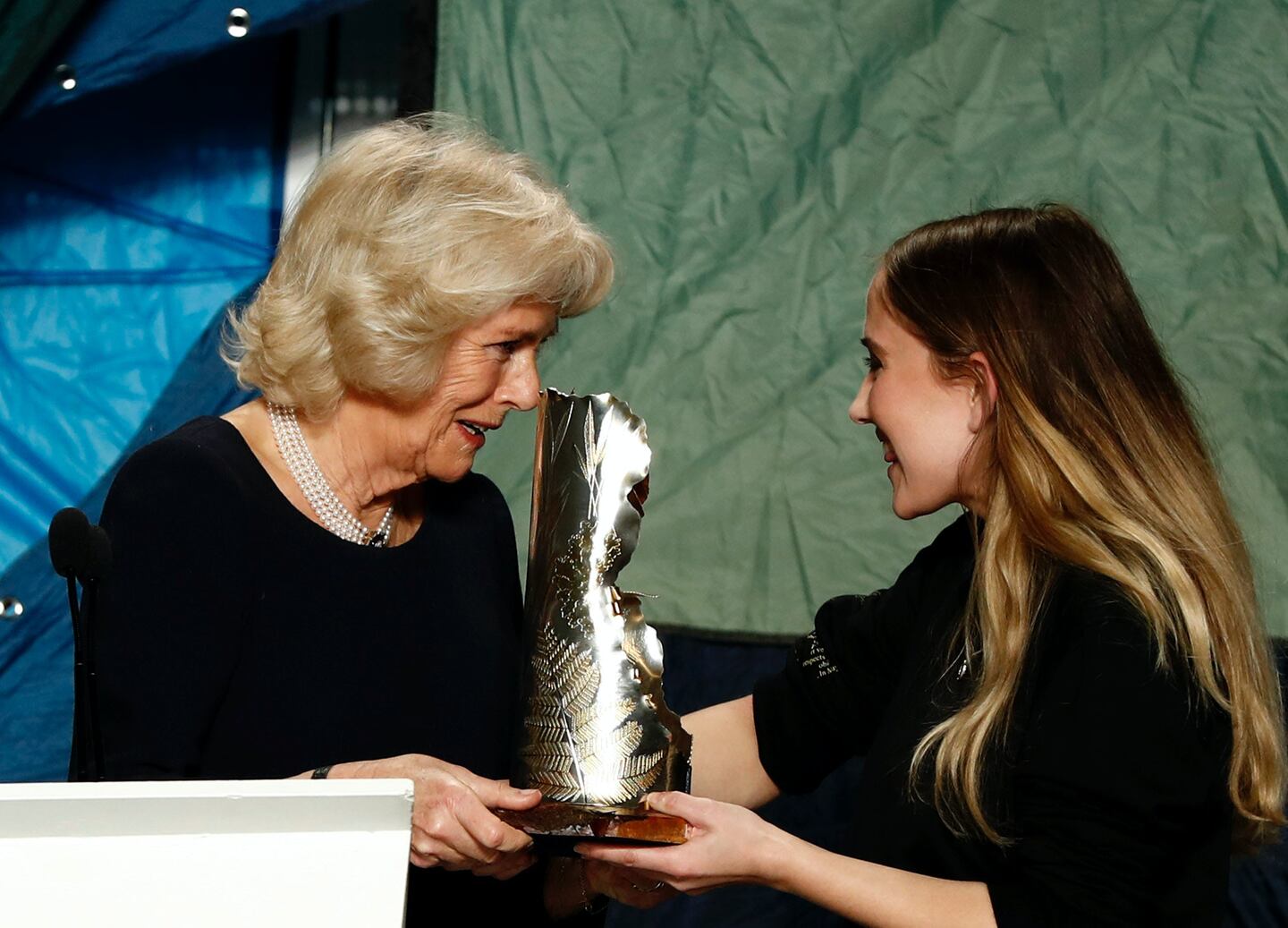
The Business of Fashion
Agenda-setting intelligence, analysis and advice for the global fashion community.

Agenda-setting intelligence, analysis and advice for the global fashion community.

LONDON, United Kingdom — London Fashion Week got a dose of royalty on Tuesday as the Duchess of Cornwall presented British designer Bethany Williams with the Queen Elizabeth II Award for British Design — a prestigious prize that recognises young designers making a difference to society.
"It’s such a surreal experience," Williams said in an interview after her show. "It’s been really amazing and a bit scary."
Since graduating from the London College of Fashion in 2016, Williams has built her business with a singular focus on social and environmental concerns. Her clothing line is manufactured using sustainable materials in partnership with charities that support social change. It is stocked at retailers including Farfetch.
On Tuesday, she sent models down the runway dressed in recycled fabrics made by an Italian rehabilitation program that teaches people with drug dependencies traditional crafts. Denim pieces were sourced from a recycling and sorting facility before being upcycled into new garments, while Williams’ mother helped hand knit oversized jumpers and loose-fitting pants from renewable, biodegradable and deadstock yarns from Wool and the Gang.
ADVERTISEMENT
The show opened with a moment's silence to commemorate fashion icon Karl Lagerfeld who passed away earlier Tuesday, and was closed by model and activist Adwoa Aboah. The collection was produced in collaboration with Adelaide House, a women's shelter in Liverpool, which will receive 20% of the profits from sales.
[Williams] embodies a system change that many doubted was possible.
The prize's previous winner, Richard Quinn, saw an overnight boost to his brand after the Queen attended his Autumn/Winter 2018 presentation. Her attendance at his show, sandwiched between editor-in-chief of American Vogue, Anna Wintour, and chief executive of the British Fashion Council, Caroline Rush was one of the most talked about moments of London Fashion Week last year.
This year, the Duchess of Cornwall stood in for her Majesty to hand over the prize. While Williams said she has already received increased interest from retailers, she wants to be very careful about how she grows her business in the coming months.
"I just have to be careful," Williams said. "Working with the different small projects, you have to be mindful of that."
The recognition of Williams' commitment to sustainable fashion comes at a time when the industry as a whole is grappling with how to tackle its environmental and social failings.
A UK parliamentary report published Tuesday castigated the industry as "unsustainable" and "exploitative" and called for taxes on clothes and tougher regulation to encourage better behaviour.
London Fashion Week has also been marked by an undercurrent of climate activism. On Sunday, demonstrators from environmental action group Extinction Rebellion staked out several venues, while Vivienne Westwood's Homo Loquax show was half catwalk, half climate protest. Elsewhere, the British Fashion Council teamed up with the BBC and sustainable fashion label Mother of Pearl for a series of talks focused on the opportunities for fashion to become more sustainable.
Williams "embodies a system change that many doubted was possible," said Frances Corner, head of London College of Fashion, UAL. "This way of working is not easy ... but this award, which is so richly deserved, should demonstrate that it is possible to embrace and face head on the challenges that threaten our industry."
Related Articles:
[ How to Build a Sustainable Brand Like Patagonia on a BudgetOpens in new window ]
[ Making the Business Case for SustainabilityOpens in new window ]
Traces of cotton from Xinjiang were found in nearly a fifth of samples from American and global retailers, highlighting the challenges of complying with a US law aimed at blocking imports that could be linked to forced labour in China.
The fashion industry continues to advance voluntary and unlikely solutions to its plastic problem. Only higher prices will flip the script, writes Kenneth P. Pucker.
The outerwear company is set to start selling wetsuits made in part by harvesting materials from old ones.
Companies like Hermès, Kering and LVMH say they have spent millions to ensure they are sourcing crocodile and snakeskin leathers responsibly. But critics say incidents like the recent smuggling conviction of designer Nancy Gonzalez show loopholes persist despite tightening controls.